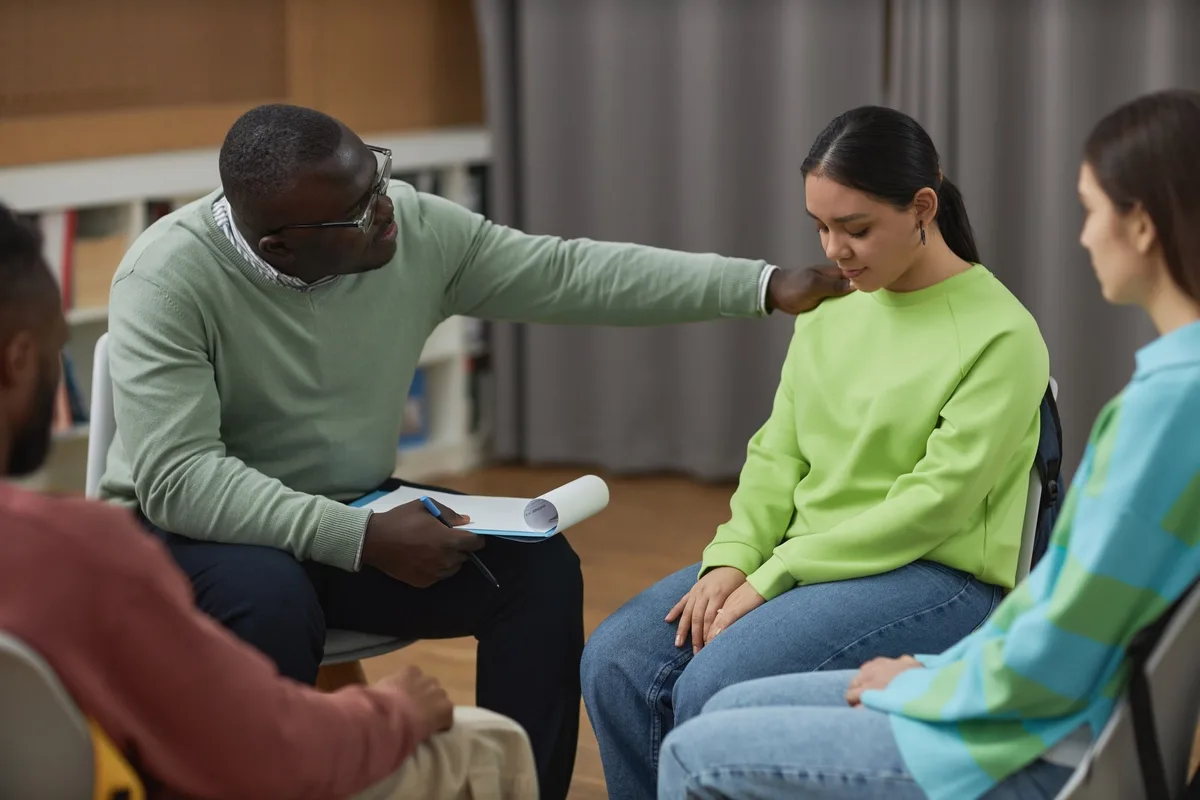24/7 Helpline:
(866) 899-221924/7 Helpline:
(866) 899-2219
Learn more about PTSD Treatment centers in Watonga
PTSD Treatment in Other Cities

Other Insurance Options

Cigna

PHCS Network

CareSource

Anthem

Premera

CareFirst

Kaiser Permanente

Access to Recovery (ATR) Voucher

BlueShield

Providence

Health Partners

Optum

Choice Care Network

UnitedHealth Group

Ceridian

Sutter

MVP Healthcare

Humana

Evernorth

Carleon

Red Rock Behavioral Health Services
Red Rock Behavioral Health Services is a private rehab located in Watonga, Oklahoma. Red Rock Behavi...



YouthCare of Oklahoma
YouthCare of Oklahoma is an outpatient clinic that provides mental health and substance use treatmen...







































































